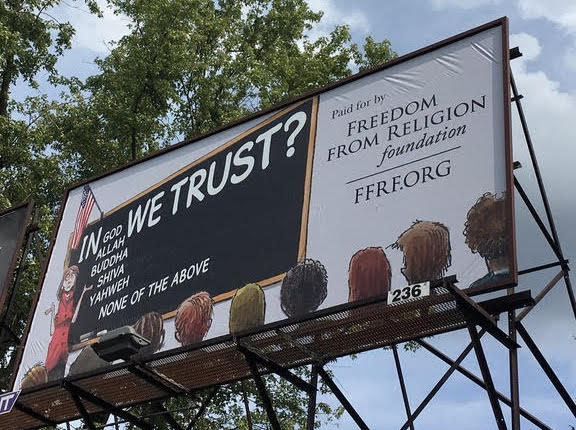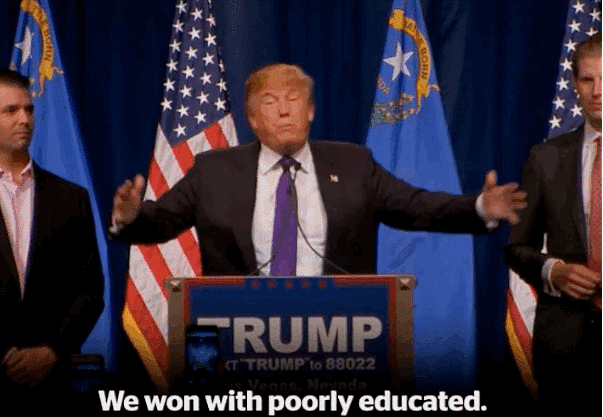Skwim
Veteran Member
.
Kind of waiting to see if they'll be torched ala "Six Billboards Outside Ebbing Missouri"
.
.
"In Kentucky, where the state now requires public schools to post “In God We Trust” on the walls, the Freedom From Religion Foundation is taking a unique approach to combat it.
First, they’re putting up this billboard designed by Pulitzer Prize-winning cartoonist Steve Benson in several Louisville locations. Rather than say “In God We Trust,” the second word comes with a variety of options (including “None of the Above”).

FFRF is also running a contest in which kids are invited to submit their own versions of the motto:
The artwork must contain the phrase “In God We Trust,” but must either protest the motto, subvert the religious intent of the new law or otherwise show why “In God We Trust” is not an appropriate motto to place in a public school.
The winners receive up to $500 along with a $1 bill that doesn’t have the motto stamped on it.
None of this will change the law, of course, but the publicity could go a long way in helping residents realize the phrase isn’t as innocuous as Republicans want to pretend it is.
source
First, they’re putting up this billboard designed by Pulitzer Prize-winning cartoonist Steve Benson in several Louisville locations. Rather than say “In God We Trust,” the second word comes with a variety of options (including “None of the Above”).

FFRF is also running a contest in which kids are invited to submit their own versions of the motto:
The artwork must contain the phrase “In God We Trust,” but must either protest the motto, subvert the religious intent of the new law or otherwise show why “In God We Trust” is not an appropriate motto to place in a public school.
None of this will change the law, of course, but the publicity could go a long way in helping residents realize the phrase isn’t as innocuous as Republicans want to pretend it is.
source
.
.

